ROTATING RESIDENTIAL PROXIES
Special Rotating Proxies
Rotating residential proxies with worldwide geo targeting optimized for high success rates.
Basic Rotating Proxies
Rotating residential proxies with random geo location.
Fast Rotating Proxies
Rotating residential proxies with worldwide geo targeting optimized for scraping and data gathering.
On Demand Proxies
Residential proxies with on demand rotation, geo targeting using user and password authentification.
8 Myths About Proxies. What You Should Know?
posted on 04.04.2023 in Residential Proxies by James Meadow
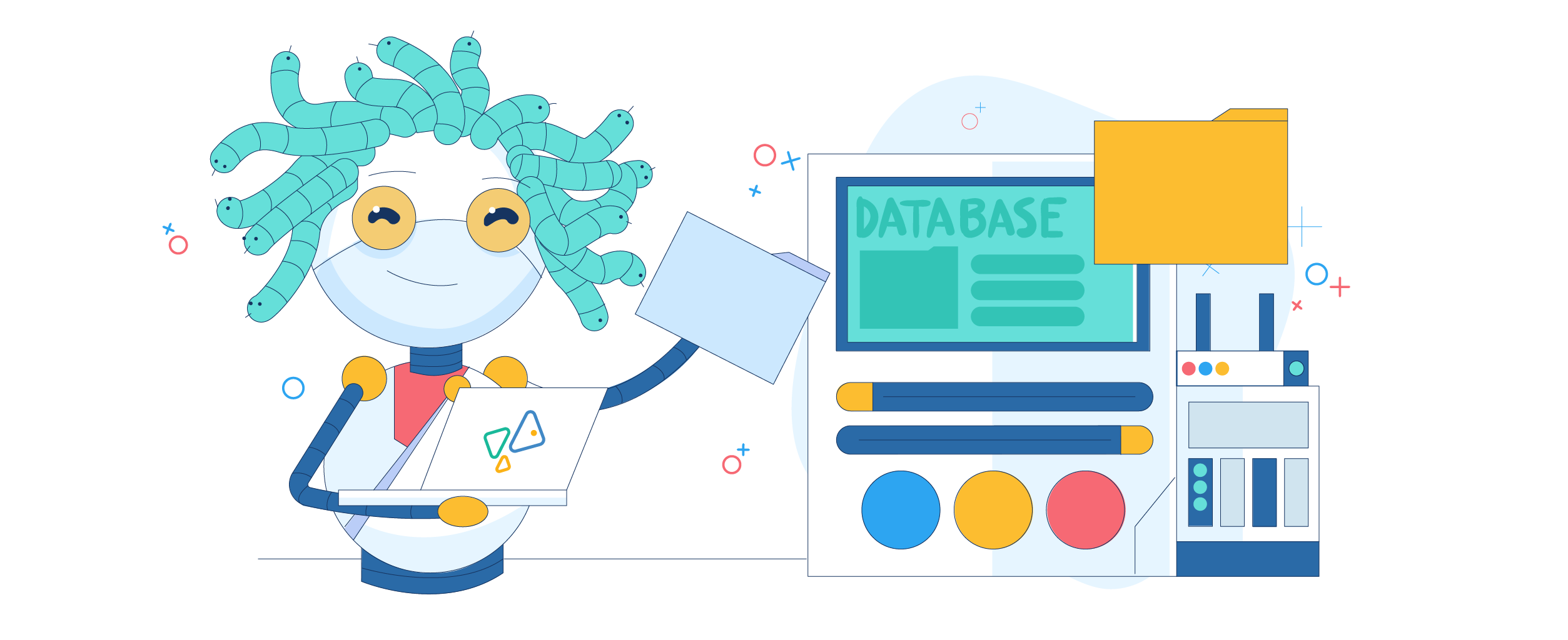
Proxy server solutions have become an easily affordable method nowadays to extract data from online sources for business and private purposes.
It is therefore only natural to see a number of myths on proxies’ limitations delivered by people who consider proxy solutions can be used to scrape information from any online source, while others believe that proxies are too limited and cannot obtain the required data in time and without getting blocked.
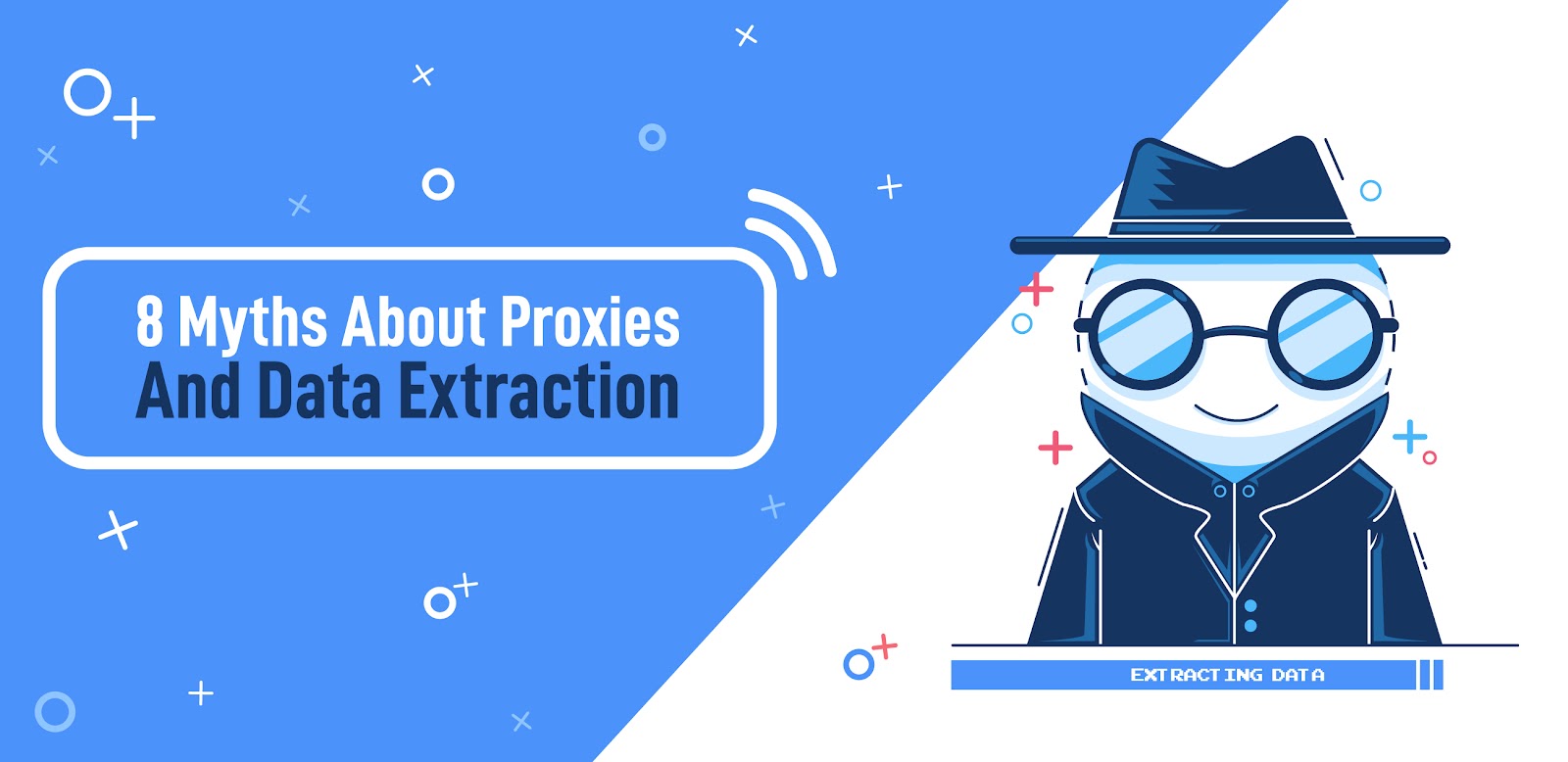
With so many alternative stories online, new users have quite a difficult time appreciating if proxies can actually help or not. And if those users are companies that need to use proxies for data extraction activities, the importance of acknowledging the necessity of proxy server solutions becomes even greater.
To answer users’ questions and allow them to appreciate when to use proxies and when it’s not necessary to employ these amazing tools, we decided to put together the most popular myths about proxies that are used in data extraction.
Most popular myths about proxies and web scraping
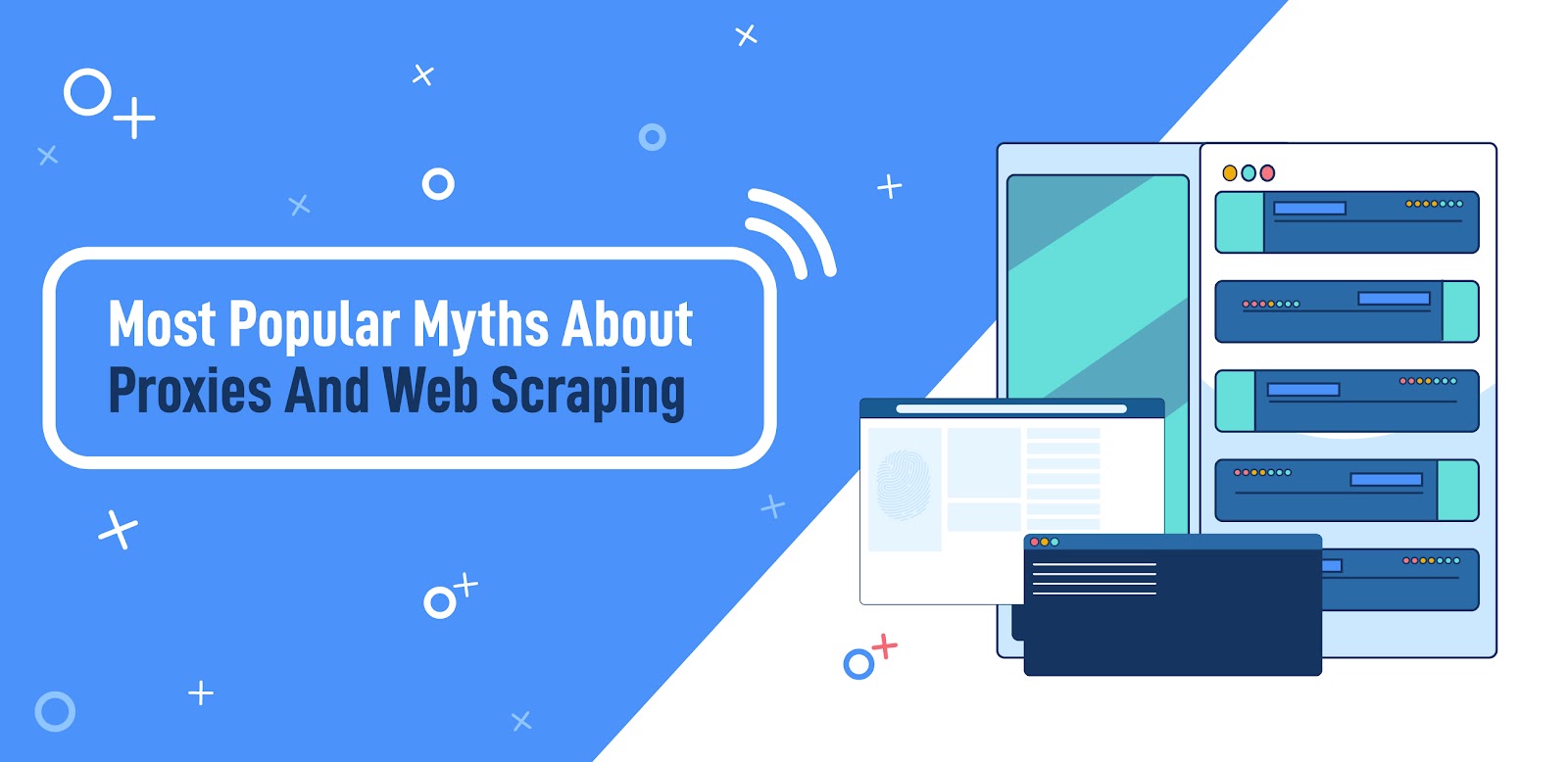
1. It is illegal to use proxies for extracting online data
One of the most prominent myths about proxies is that it is illegal to use them for web scraping activities, especially for business purposes.
Now, since it’s quite easy to see why proxies are valuable tools for users who are interested in business-related data or information that can be implemented in various marketing and sales plans, it is somehow ‘normal’ to think that using proxies should be illegal as they obviously offer companies major advantages.
However, even though companies enjoy some great benefits from using proxy server solutions, these data extraction tools are completely safe and legal to be used for a multitude of reasons in the online environment.
Is there a limit to using proxies for business cases?
If we are to find a more suitable comparison, we would have to think of proxies as we are regarding the Internet.
Is it legal to go online and browse through a multitude of websites? Yes, it is legal.
Is it legal to go online and engage in malicious activities? No, of course not.
The same legal (and common-sense) rules apply to proxies and a user who wants to obtain online data from a website always needs to make sure that the targeted content is for public use and can be accessed without any problems.
To check there won’t be any legal issues when targeting a website for content, proxy users need to verify the available ‘Terms and Conditions’ published by the site administrators.
Finally, even if the data you can obtain is for general public access, it doesn’t mean that you can use it in any way you want.
Users - especially those who need information for business reasons - have to remember that you can get ‘inspired’ by your competitors’ online content for marketing, sales, or SEO purposes, but you cannot use the data directly without any filtering.
To keep it simple, the data we scrape from online sources can be used in an indirect manner and we always have to respect the intellectual property and all copyright rules that apply.
2. Data extraction with proxies takes place in an automatic manner
It is true that web scraping is generally taking place in an automatic manner as it is somehow easier to handle large volumes of data in order to organize them in a more centralized format.
However, since during data extraction jobs a potential number of errors happen to occur, human intervention and surveillance remain necessary.
At the same time, as we tried to emphasize in other places, the web scraping process is recommended to take place in a less automated fashion to avoid the online mechanisms that are installed by some websites.
And to do just that, for a greater degree of success, users should keep a close eye on the data scraping process and even attempt to obtain content by targeting web pages one by one while rotating the exit IP addresses.
Therefore, even though the web scraping process takes place in an automatic manner, to avoid any website barriers that may restrict data extraction jobs, users should give the entire process a human touch.
And of course, they should always rely on the amazing abilities of rotating residential proxies to access the targeted content.
Read more on our blog what is a residential proxy.
3. Scraping with proxies and web crawling is the same thing
People less tech-savvy often make the mistake of believing that web scraping and web crawling are the same things. And since most Internet users have no intimate knowledge of how an online search engine works, it is only normal to witness this confusion.
Now, if we start from the idea that we understand how web scraping works with proxies, then we can more easily focus on web crawling.
From a general point of view - and to better understand how web crawling works - we have to look at the most popular search engines on the Web to see how the information is classified so that users searching for web data may be able to find the requested content.
Thus, the online search engines benefit from web crawlers to engage in online searches for the requested content to update and organize the Internet links in a number of databases that can be used to serve the required data when necessary.
For instance, if we think of an individual looking to engage in web scraping for the purpose of obtaining public data, then the first step would be to put together a list of websites. This URL collection represents a web crawling activity, even though it takes place at a much slower pace and is done by a human actor.
As for web scraping, the user is taking advantage of a number of proxy server solutions to find publicly available data and index the content in a single format or database that can be later used on in a more approachable manner according to the final purpose of the data extraction process.
It goes without saying that proxy servers play a major role in web scraping, attracting companies interested to enhance their business interests via these powerful data extraction tools.
4. Proxies can be used to extract information from any online source
When we bring up this kind of myth to discuss the possibility of extracting information from any website or online source, we need to approach the topic from a twofold direction.
First of all, we have the legal question of accessing and using publicly available content for a particular business purpose.
As we approached the subject at the beginning of our article, the user must always make sure that the targeted websites allow visitors to extract information via web scraping.
The user can start by checking the available ‘Terms and Conditions’ that are published on the site to see if there’s any reference to using the available data.
And second, even if the web data can be easily accessed, this doesn’t mean that the content can be directly implemented into your own business framework for marketing or software development. You need to take into account every time you obtain web data that you may abuse some copyright or brand regulations.
Finally, the 3rd element to be considered when trying to obtain public information from various websites is the level of protection imposed by your online target. You may be dealing with a site that increased its security by installing some online mechanisms designed to keep malicious actors away or resist software bots that try to obtain content via automated scripts.
That’s why, before engaging in a web scraping activity on a particular website, you should first test the target site by trying to run your scraping tools on a few web pages to see if you encounter any barriers or traps against data extraction.
5. You need to be a coding wizard to obtain web data via proxies
This is another common myth, or rather misconception, about proxies as many people consider that you must have some coding skills before engaging in web scraping activities and targeting business-related content.
This idea might have been closer to the truth somewhere in the distant past when proxies were something of a novelty and the Internet a more accessible space.
However, as years went by, some individuals started to deploy malicious software targeting websites and other web sources for sensitive information forcing web admins to implement higher levels of protection in an attempt to keep up with the growing number of threats.
This security change equally affected users who were taking advantage of proxies to reach public information as they started to be seen as unwanted visitors.
And yet, even though it became somehow more difficult to reach the targeted data, this change has also led to more proxy providers coming forward and offering users the necessary proxy server solutions that can get the job done, including the reliable set of rotating residential proxies that are usually preferred for more difficult web scraping campaigns.
Today, users can choose between multiple proxy providers and solutions, and they can equally find a great number of free tools to help them obtain the required content without having any coding experience.
6. Data extraction can be used just for business purposes
This myth is not entirely false as new and old companies in the market have been using proxies for many years to obtain information for developing the products and services they offer to customers.
At the same time, companies large and small have been taking advantage of proxies to engage in data extraction campaigns that target relevant content for marketing, sales, SEO, social media, and other business areas.
Nevertheless, proxies used in data extraction jobs go beyond business purposes and can be equally used for other reasons, such as scientific papers and research documentation by university students.
In addition, the proxy user may be a regular person who wants to find out more about a particular topic or area of interest ranging from history, or architecture, to anything related to the sphere of culture.
What’s important to remember is that proxies are great tools to extract the information of interest from any website and if the final application is related to a private or business case, that’s all up to the final user.
Check out on our blog how to use proxies to protect your brand.
7. Proxies can be used to build your target audience
This is the type of myth that is difficult to debunk as it’s getting quite close to reality.
That’s because proxies are indeed helpful in discovering your potential customers and addressing them via web-based and traditional channels.
Some of the most popular methods of reaching your audience include email marketing, social media and marketing campaigns.
In addition, the online data one can obtain with proxies can be used to create better blog articles and refine the product descriptions and SEO approach, all of these efforts leading to an improved level of communication with your audience.
So, though we can say that proxy server solutions help companies find better ways to discover and attract more customers, we shouldn’t go so far as to say that proxies can be used to build an audience from nothing.
Building a customer database takes time and great solutions that actually help users to obtain the benefits they require for business or personal purposes. And proxies play a major part in this story.
8. Proxies are not great for obtaining business data as they can be blocked
The short answer to this myth is that it depends on the quality of the proxy server solutions used in data extraction jobs.
However, if we approach the topic of using proxies for business purposes from a wider perspective, then we cannot miss revealing the major benefits proxies bring to companies that need online data.
First of all, it is quite obvious how important it is to mask your exit IP address while you browse online or target some web data.
Since the Internet is full of malicious software and online traps, it is highly relevant to keep your IP hidden to avoid a 3rd party accessing your sensitive details.
And if a private user is only slightly interested to remain anonymous in the online space, a company whose business depends on obtaining the required information in time and without delay wouldn’t want any 3rd party to access its IP details. After all, you wouldn’t want your competition to know that you’ve been eavesdropping to catch a glimpse of their sales and marketing secrets.
Second, proxies allow users to access content from geo-restricted websites that serve public information to a limited region or country.
This is another reason why companies are highly interested in accessing the proxy benefits for their own business goals. We have to remember that many corporations serve different online content on the websites they control in various countries according to the local preferences and specific conditions.
Proxies used in web scraping do an amazing job for new and established firms that need content from different websites, no matter if they are local or not. The same proxies offer companies the possibility to mask their presence and actions online so they can obtain as much information as possible from various web sources.
With so many advantages brought about by proxy server solutions, it is only normal to see people saying that all these benefits are just myths.
This category's latest stories
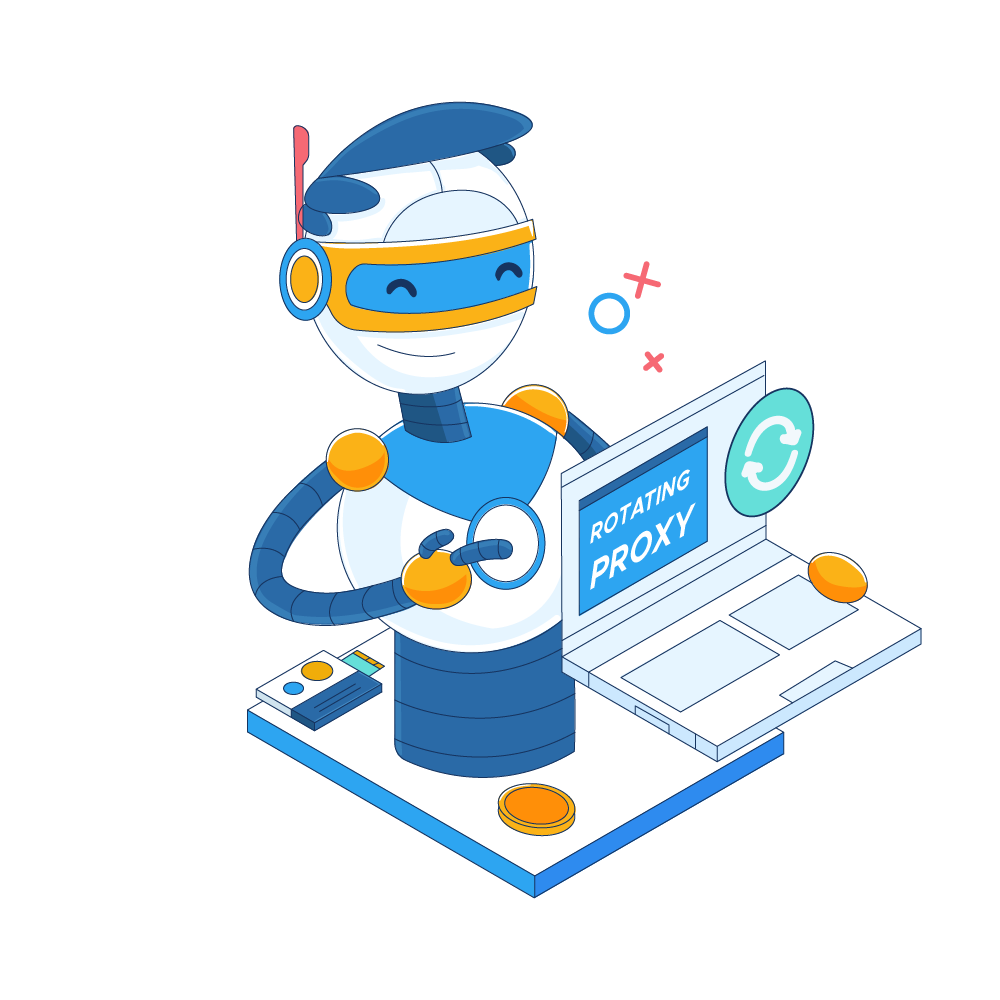
What Are Rotating Proxies and Why Do You Need Them for Your Business?
What are rotating proxies and how can they help your business? Learn the answers to important questions and see why you need them for your business.
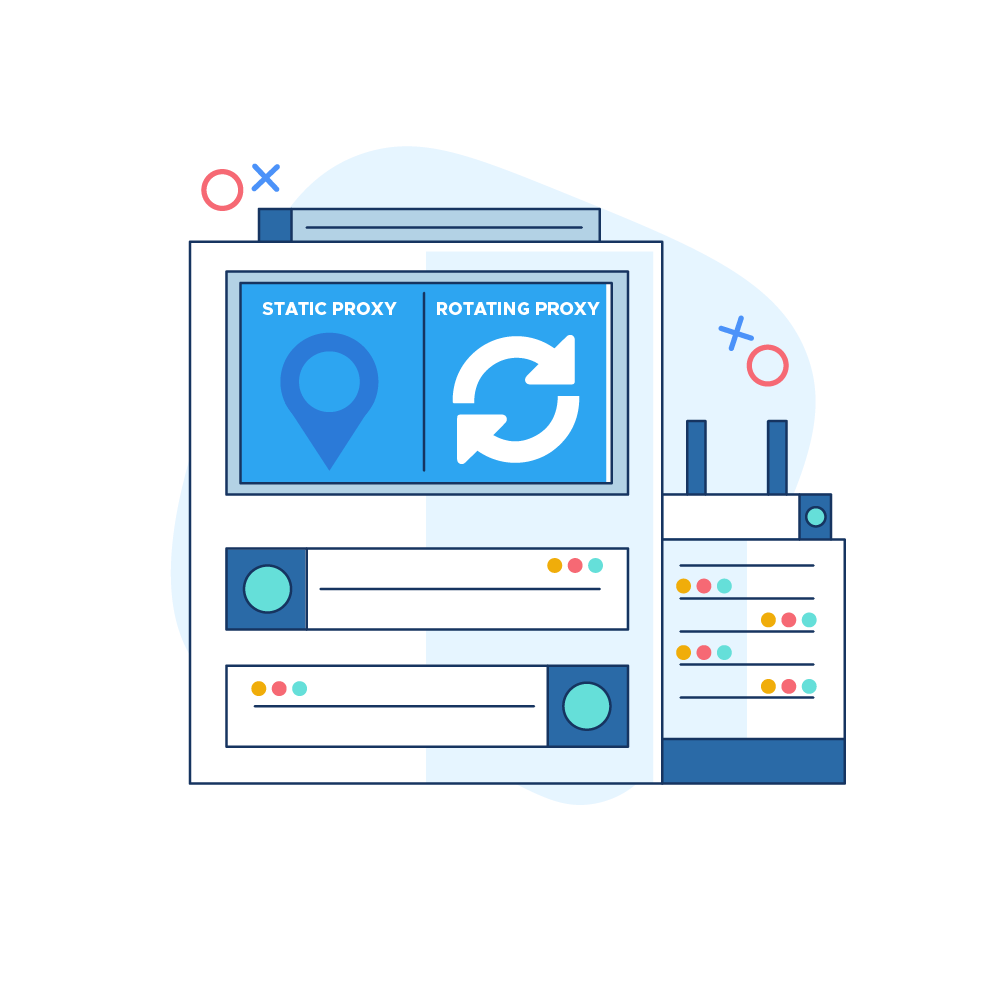
Static or Rotating Residential Proxies: Benefits and Drawbacks
What is the difference between Static and Rotating Residential Proxies? Which ones are better for your business projects? Read our blog post to find out why both static and rotating residential proxies are great solutions for businesses that need to obtain valuable data.

7 Top Proxy Questions for Your Provider: Your Ultimate Guide
How do you choose the best proxy server provider? Ask your proxy company the following questions to make sure you make the right decision!
Featured Articles

News
02.12.2024
Introducing Ice Payments on Shifter
Discover seamless crypto transactions with Ice payments on Shifter. Streamline your proxy service purchases and unlock new opportunities with Ice integration.
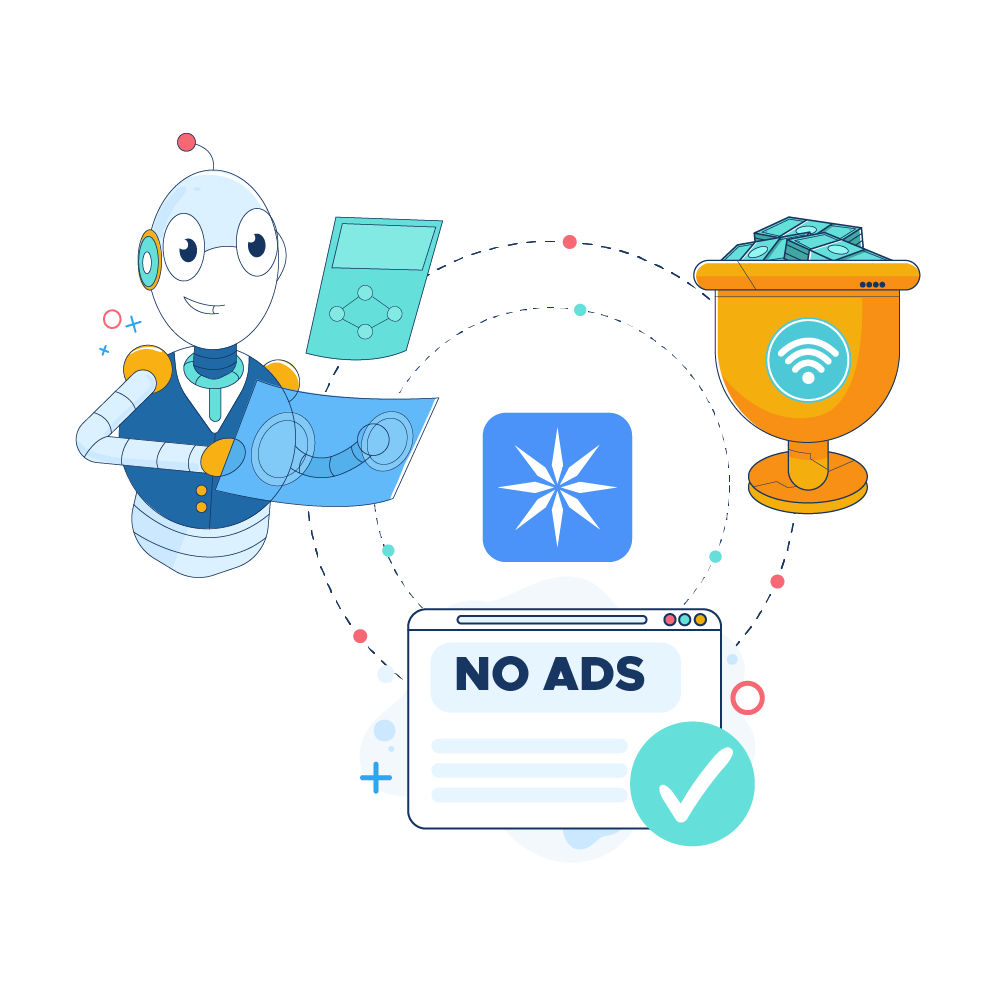
News
03.21.2023
Looking for an Alternative to Pi Network? Why ice Network is the Perfect Solution
Find more about the tremendous advantages of the ice Network and mining ice coins, as many are starting to take notice, ultimately choosing to leave Pi Network to have access to better, more rewarding opportunities.
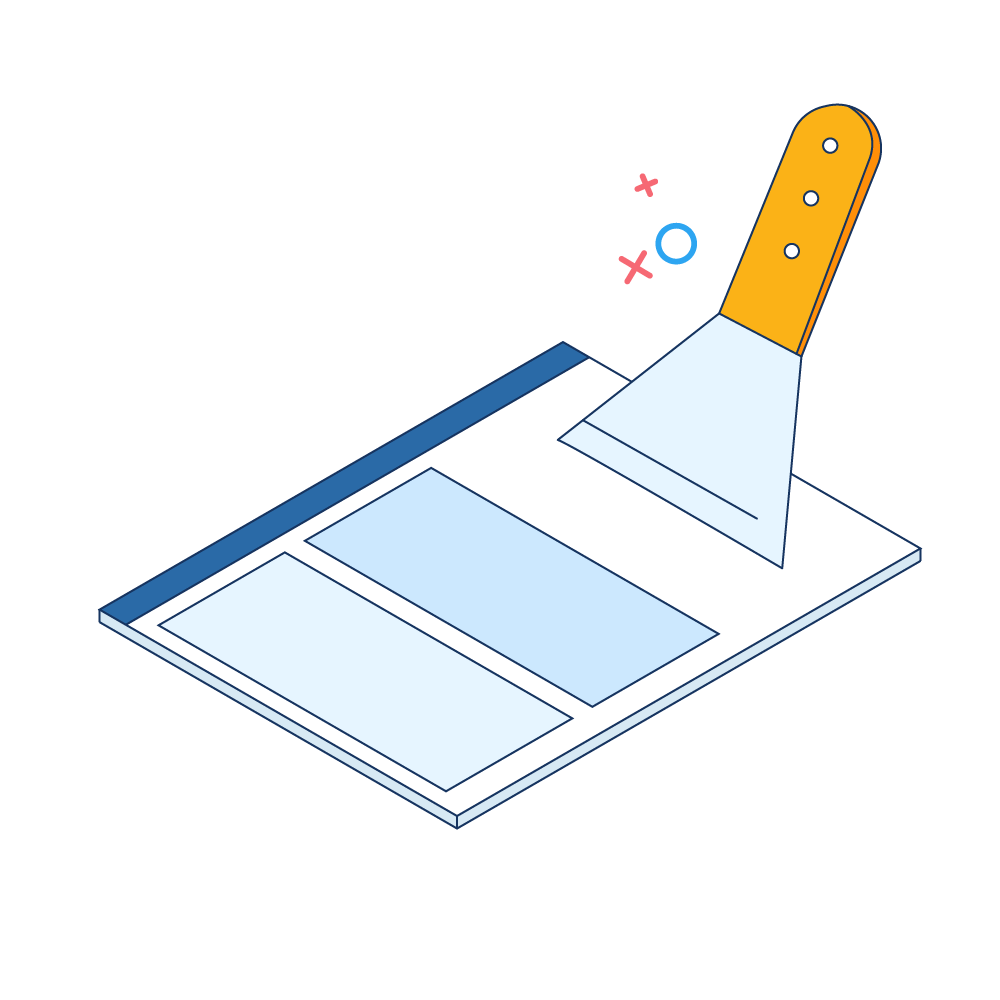
Scraping
03.13.2023
3 Major Web Scraping Cases for Companies
Do you want to discover the major web scraping cases for companies that use proxies? Check our article and find out how proxies can support your business!
Shifter's legacy
Shifter was founded in 2012, as one of the first residential proxy providers, since then it has become one of the leading proxy networks in the world and it's used by more than 25.000 clients including Fortune 500 Companies. Users can connect from anywhere to access local data without any restriction, while preserving a high degree of privacy and security.